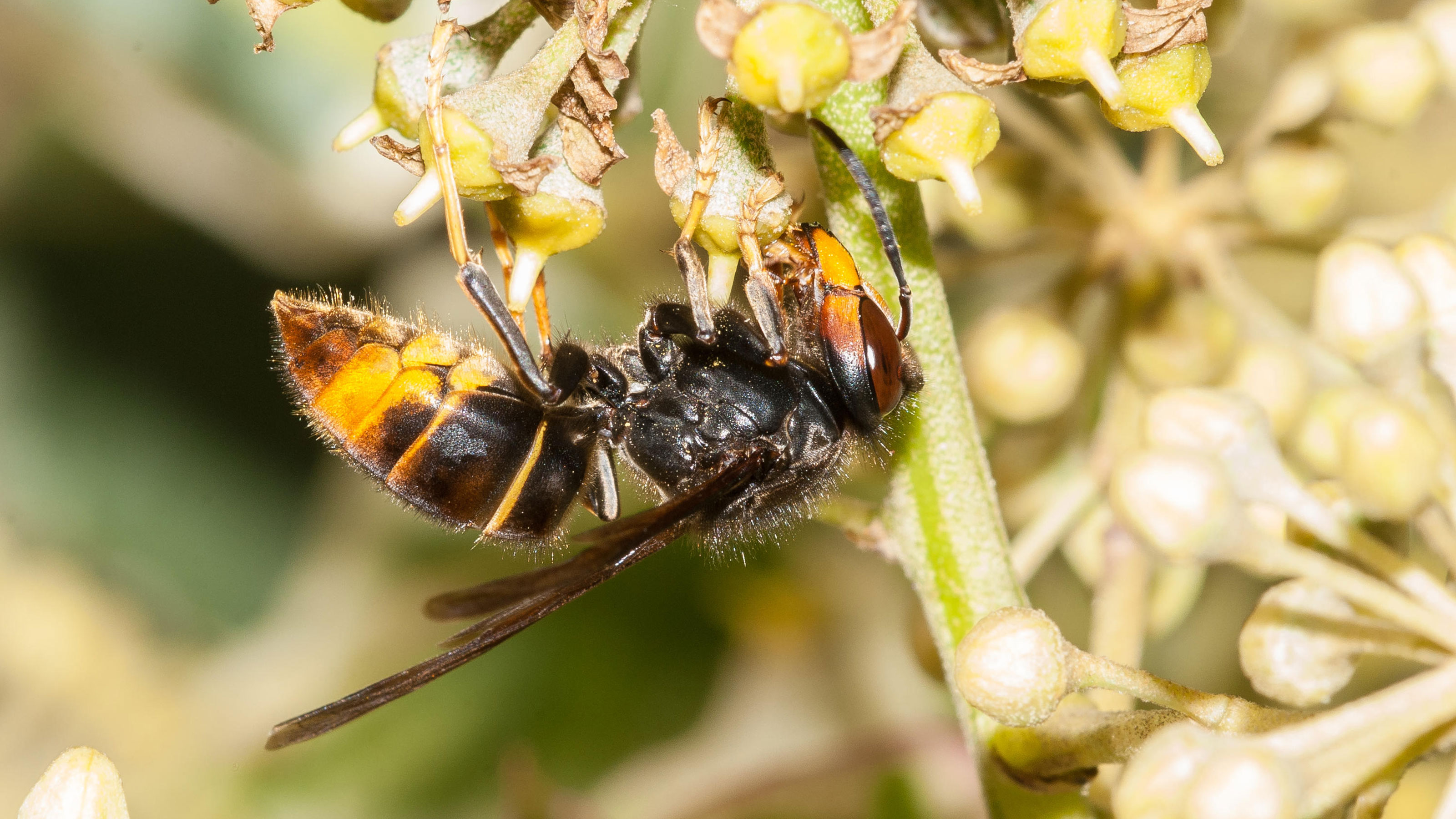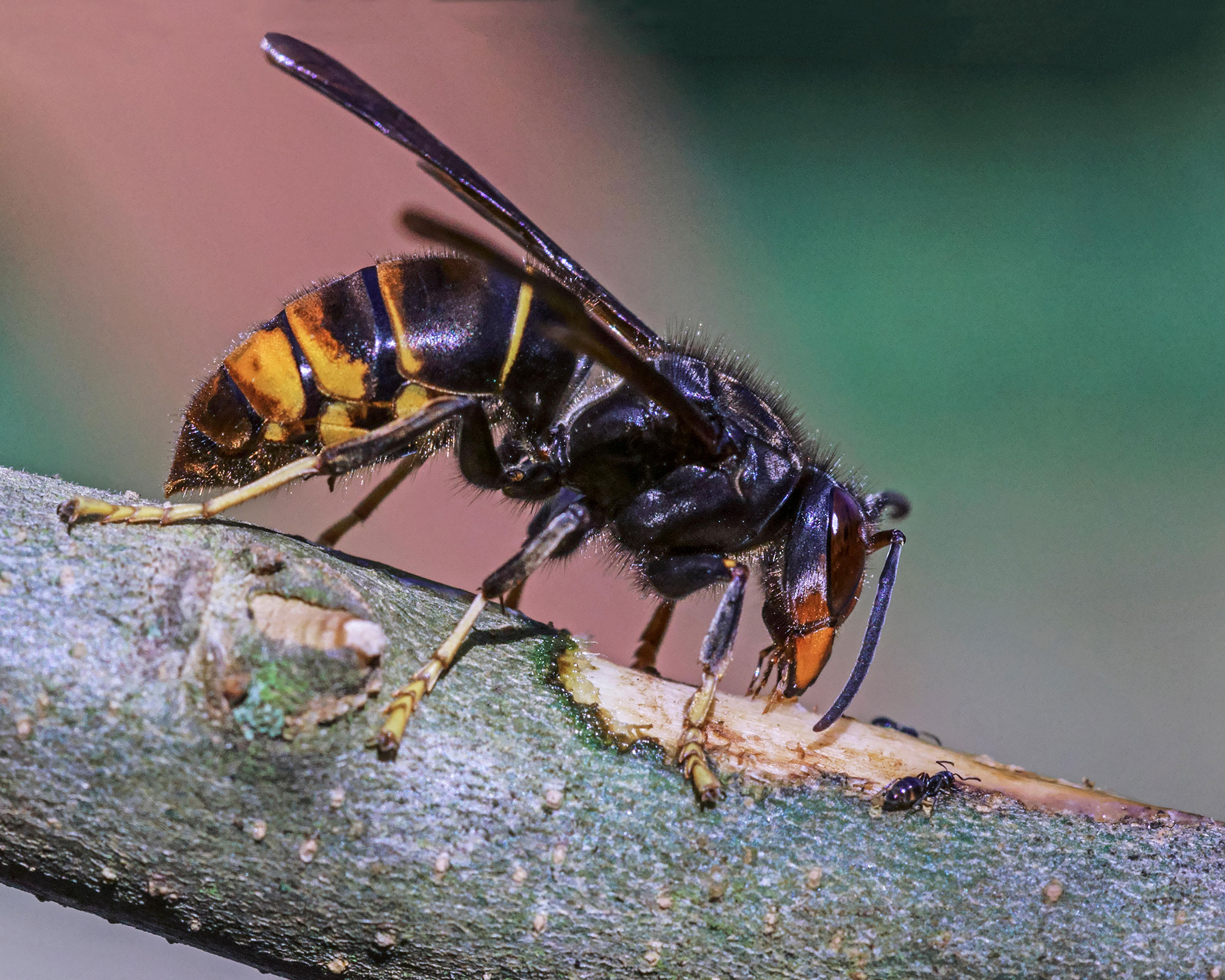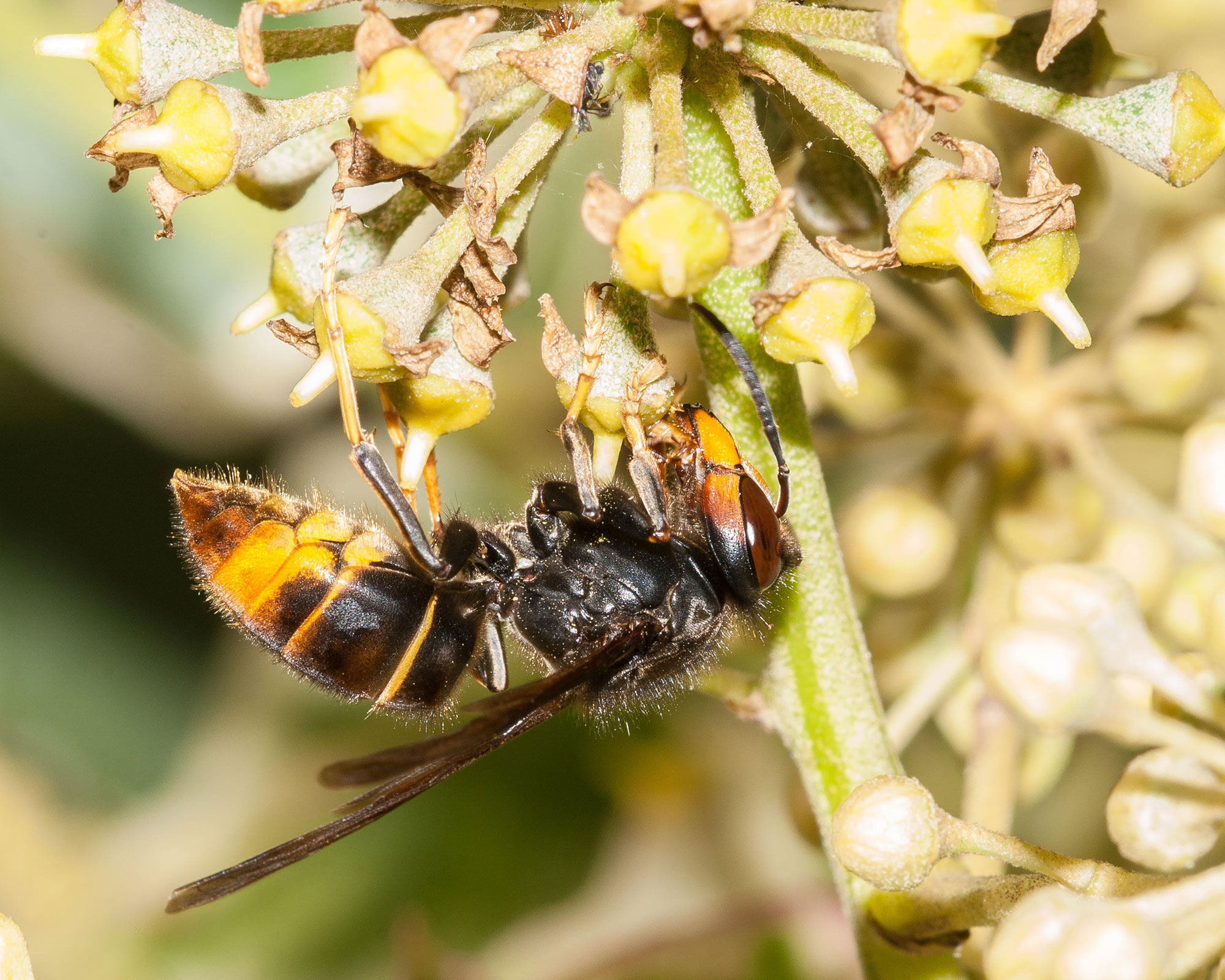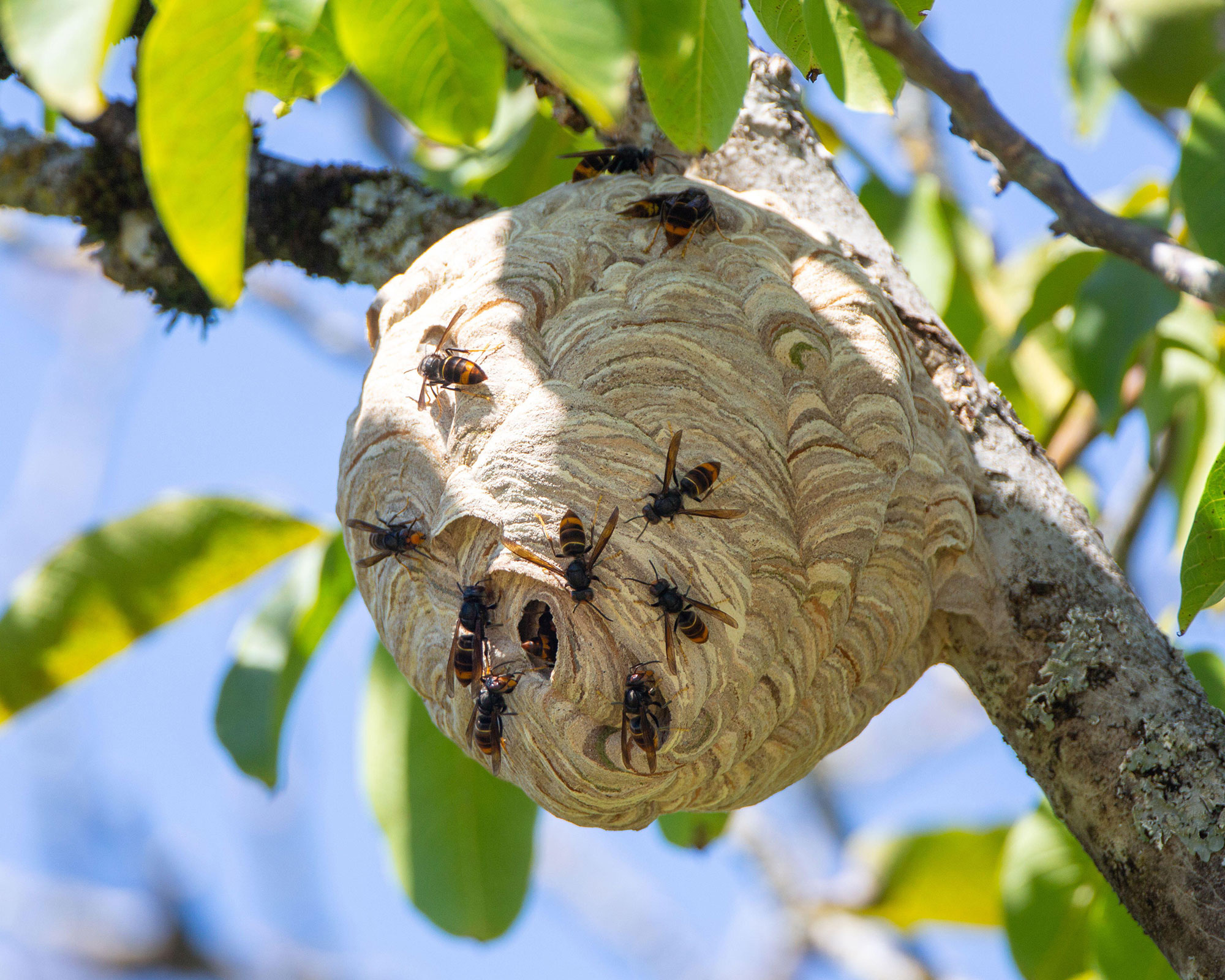Experts issue warnings as killer Asian hornets are spotted in the UK
Increased numbers of killer Asian hornets in the UK have prompted fresh warnings about the threat to our native bee population and other wildlife


Sales of insect swatters are skyrocketing by 250 per cent in the UK as the first killer Asian hornets of 2022 have been spotted and confirmed at Felixstowe in Suffolk, with reports of further unconfirmed sightings in Medway, Kent.
The garden pest, which feasts on bees and possesses a powerful sting potentially deadly to humans, was found in the shed of a ‘sentinel apiary’ beekeeper, an apiary set up to monitor for diseases and pests.
Although you might already be up to speed with how to get rid of wasps, news of the arrival of these more dangerous pests is concerning for both us and our native wildlife.
'We’ve seen an enormous increase in sales of insect swatters this week,' says Liam Tickner, garden and outdoor living category manager at online retailer OnBuy. 'The surge fell perfectly in line with news reports of killer Asian hornets first being spotted on the Channel Islands, and now Suffolk, with Brits responding to the news by snapping up swatters at record rates.'

Killer Asian hornets warning
'The Asian hornet is smaller than our native hornet, with adult workers measuring from 25mm in length and queens measuring 30mm,' says Anne Rowberry, president of the British Beekeepers Association. Its abdomen is mostly black except for its fourth abdominal segment which is a yellow band located towards the rear. It has characteristic yellow legs which accounts for why it is often called the yellow legged hornet and its face is yellow/orange with two brownish red compound eyes.'
Native to south-east Asia, Asian hornets were first spotted in the UK in 2016. Not only do the insects pose a danger to the public, they also represent a threat to native bee populations and the wider environment.
'The Asian hornet is a much bigger insect than a wasp, although the same family,' explains Anne. 'It therefore packs a lot more venom and one sting could be very serious. If stung, seek medical advice straight away, especially if you have an allergy to wasps as then it could lead to death quickly through anaphylactic reaction.'
If hornets are allowed to become established in the UK they pose a threat to honey bees through decimating their colonies, and to other smaller pollinators too. 'This would impact on the avian world of insect eaters, our tits and warblers would be likely to suffer,' says Anne. 'A serious build-up of hornets would affect all our plants reliant on pollinators.'

Asian hornets feed on nectar, so you may spot them flying around plants for pollinators, flowering trees and shrubs. Camellias are a particular favourite says Anne.
At this time of year, they build their primary or first nests. Housing around 200 hornets, these are papery-looking and tennis ball-sized, with a bottom opening. As the young larvae grow and pupate into worker hornets, they start building their secondary nests. These may be the size of footballs, often found at the top of a tall tree or in the eaves of a house.
'Do not approach a nest if you find one, stay at least 20 metres away,' says Anne. 'Just take a picture of the nest and area where you found it on your mobile and send it in using the Asian Hornet Watch app – details are available in the Asian Hornet section on the BBKKA website to help you identify what you have seen and to report it the official sources.'

'Repellents used for wasps have some effect and that probably includes insect sprays and citronella,' says Anne.
Professional pest controllers deal with large swarms of Asian hornets by destroying their nests and trapping the insects with bait, but this is not something you should attempt yourself. Always contact a professional for advice if you spot a nest in your own garden.

Jayne Dowle is an award-winning gardening, homes and property writer who writes for publications including Sunday Times Home, Times Bricks & Mortar, Grand Designs, House Beautiful and The Spectator. She was awarded the Garden Journalist of the Year accolade at the Property Press Awards in 2021.
